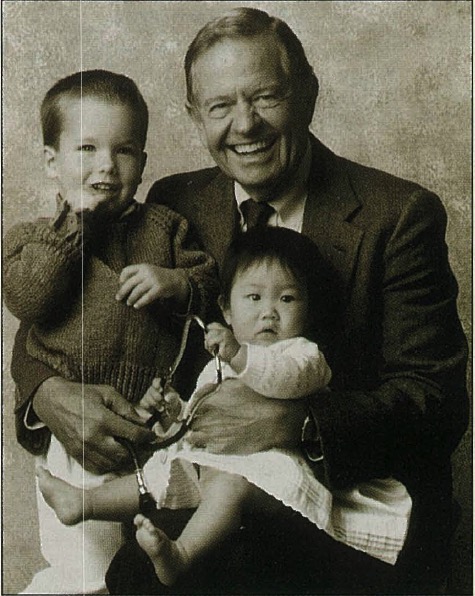After forty years of pediatric practice in Massachusetts, participating in the parenting of 25,000 patients, I have developed the map of early child development,” writes Dr. Berry Brazelton in his bestselling Touchpoints, The Essential Reference. It is his 24th childcare volume. Brazelton, 80, is perhaps the world’s most experienced mind on child raising from prenatal to six-year-olds–the storm-and-sun period–bringing parents doubt and late-night vigils.
The book is a guided map to just about every situation a parent encounters–from bed-wetting to imaginary friends and dealing with loss and death. Each of these developmental markers signify “touchpoints: predictable times occurring just before a surge of rapid growth in any line of development–motor, cognitive or emotional–when, for a short time, the child’s behavior falls apart.” Brazelton clarifies the positive nature of touchpoints: “They become a window through which parents can view great energy that fuels a child for learning. A child’s strengths and vulnerabilities, as well as temperament and coping style, all surface. What a chance for understanding the child as an individual!”
Touchpoints covers emotional changeovers affecting basic functions and learning: sleep, eating, independence with walking, communication, discipline and toilet training. On disciplining two-year-olds, Brazelton writes: “As I warn parents, it’s easy to predict which times of day she’ll be at her worst; at the end of the day when you are both tired, whenever you have an important visitor, get on the phone or go to the grocery store. When a toddler asks for attention, she needs a hug or a short bit of recognition, not anger. Physical punishment such as hitting or spanking will mean two things to her: one, that you are bigger than she and you can get away with it, and two, that you believe in aggression. Discipline is the second most important thing you do for a child. Love comes first, and discipline second. Discipline means teaching, not punishment.”
We all know parents are a child’s first role model. So if Mom leaves home to work, the child’s mind is taught that one-on-one love and teaching from a mother doesn’t come first, making money does. Brazelton realizes this, and in interviews with newspapers flatly promotes a viewpoint hotly criticized: “Mothers really need to stay home with their babies. Every day home is a gift to your child. If they want to work, mothers better split themselves in two. We’re not family and child-oriented in our society. We are the least supportive country in terms of parents.” “He’s never been a champion of working moms,” says Judsen Culbreth, editor of Working Mother magazine.
Touchpoints explores specific issues of child-rearing in the first six years: sibling rivalry, crying, tantrums, waking at night, lying, television and more. Brazelton sees these as expressions of the child’s emerging struggle for autonomy and offers solutions in which the parents remove themselves from the struggle and thus can defuse it. For parents with youngsters, Touchpoints provides rich background and solid practical knowledge in successfully raising kids.
TO ORDER TOUCHPOINTS, THE ESSENTIAL REFERENCE, WRITE TO: ADDISON-WESLEY PUBLISHING CO., INC., RTE. 128, REDDING, MASSACHUSETTS 100146, USA
